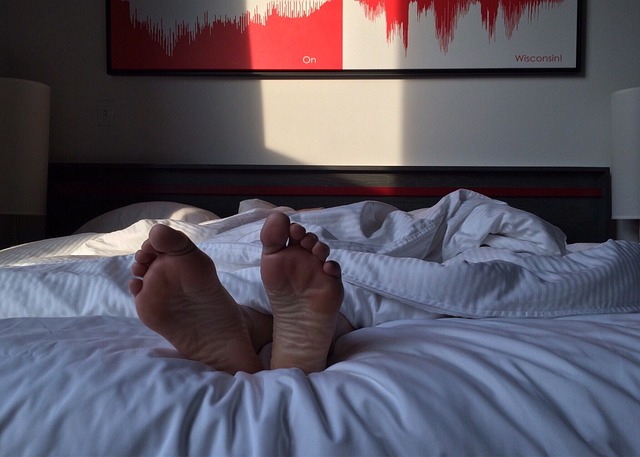Sleep deprivation is one of the most important pillars of our health and well-being; for most people, sleeplessness is a common struggle. Understanding its causes and effective remedies can significantly improve sleep quality and overall life satisfaction. Identifying and addressing sleep deprivation not only enhances physical health but also supports mental clarity and emotional stability.
Causes of Sleep Deprivation
1. Modern Lifestyle and Technology
Undoubtedly, the main reason for this sleep deficiency is today’s style of life, because working late into the early night and socializing-even long displays-on-screen extract their toll. Blue light emitted by screens of phones, tablets, and computers interferes with melatonin production-a hormone regulating our circadian cycle. Thereby, disrupted melatonin has a bad impact on falling asleep and it means that a person is not able to sleep properly at night.
2. Stress and Anxiety
Other significant causes of sleep deprivation may relate to stress and anxiety. The chaos in mind regarding continuous work, personal problems, or even social issues paves the way to promote sleep disturbance. Anxiety generally relates to a factor of worry and racing thoughts that avoid relaxation of an individual, hence forbidding him from falling into deep sleep.
3. Medical Conditions
Other medical conditions can further worsen sleep deprivation. For example, insomnia is a common sleep disorder in which the affected individuals have difficulty initiating or maintaining sleep and thus are always sleep-deprived. Sleep apnea is another medical disorder characterized by intermittent cessation of breathing while asleep and results in fragmented sleep with persistent daytime sleepiness. Another element is RLS, restless legs syndrome, where the patient experiences uncomfortable sensations within the legs that interrupt sleep.
Dangers of Sleep Deprivation

1. Impaired Cognition
Inadequate sleep seriously disturbs the cognitive functions of the mind. It adversely affects memory, attention span, and decision-making capabilities. It reduces problem-solving capabilities and increases reaction time, consequently reducing overall intellectual performance. Cognitive deterioration may further decline work efficiency and academic performance.
2. Physical Health
Chronic lack of sleep is a factor in many health vulnerabilities. Sleep deprivation increases the risk of cardiovascular diseases, which include hypertension and heart diseases. Poor sleep leads to obesity and an increased weight of the body since it interferes with the hormones that regulate appetite and metabolic activities. Indeed, poor sleep predisposes an individual to a higher risk of acquiring type 2 diabetes because of its interference in glucose metabolism and its predisposition to insulin.
3. Mental Health
Sleep deprivation does indeed take a toll on the psyche. Prolonged sleep loss could increase symptoms of anxiety and depression. Mood swings or being irritable, leading to emotional instability, could also occur from not getting good sleep. The association of sleep with mental health is bidirectional, such that poor mental health is bound to give rise to sleep disturbances, as sleep deprivation usually tends to worsen mental conditions.
Treatments for Sleep Deprivation
1. Establish a sleep routine
One of the best “pills” for insomnia is establishing regular sleep patterns. Going to bed always and getting up always at the same time actually sets the body’s internal clock, making it easier for the body to fall asleep and then naturally wake up. And this must be maintained even over the weekends.
2. Make Your Bedroom Sleep Friendly
The sleeping environment is usually very important to good quality sleep. If light or noise might disturb you, then your bed needs blackout curtains, earplugs or a white noise machine. In the same breath, investing in quality bedding like mattresses and pillows that are compatible with your sleep posture will boost better quality sleep.
3. Relaxing bedtime
Routine This can be greatly facilitated with the introduction of a calming bedtime routine. Reading or enjoying a warm bath can be coupled with relaxation techniques like deep breathing or meditation that will help calm one’s mind and body for sweet slumber. Engage in non-involving activities and screen use before bed in order to avoid hindering your ability to fall asleep.
4. To Reduce Stress and Anxiety
Additionally, anxiety management is essential when it comes to better sleep. Other strategies, such as stress management, bring about relaxation. Some of the others are through mindfulness and meditation or even physical exercises. Anxiety can also be relieved and sleep enhanced through the keeping of a worry journal and applying cognitive behavioral techniques in response to negative thinking patterns.
5. Use Stimulants and Alcohol Less
All these substances interfere with an individual’s sleeping pattern: caffeine and nicotine are stimulants, which would make it hard for an individual to sleep, so it is better that one avoids them a few hours before going to bed. While as much alcohol may make one feel sleepy at the start of administration, the medication interferes with a person’s sleep cycle to such an extent that poor, fragmented sleep results, so moderation will be key.
Sleep Deprivation Prevention

1. Sleep First Work sleep into your daily schedule. Ensure that there is ample time set aside for sleeping; do not compromise on the number of hours you sleep in order to accommodate something else. Remember that general health and productivity have a lot to do with sleep, so try as much as possible to fit rest into your daily schedule.
2. Monitor your sleeping habits. It will help in telling what is wrong and can be improved by keeping track of the pattern of sleep. Sleep journals and tracking applications show everything about sleep habits, such as quality and amount, and thus help in informed adjustments.
3. Read More An awareness of sleep health and its implications for how one feels is a good motivator toward better practices in sleep. Learning how things such as diet, exercise, and stress impact sleep will be used to help make lifestyle changes that support improved sleep patterns.
4. Seek Professional Support. But in certain cases, sleep deprivation may necessitate professional help following the breaking of several lifestyle habits. This is where the doctor or sleep specialist intervention might offer appropriate treatment for sleep disorders apart from the other related disorders. In this respect, professional help in handling the situation—which might encompass CBT-I among other forms of specialized treatment—might be necessary.
5. Conclusion Sleep disorder are common in our time and seriously affect cognitive functions, physical health, and mental well-being. Once they determine the cause and good remedies for the causes and apply preventative measures, people will be able to improve so much regarding the quality of sleep and health status in general, including good sleep hygiene, managing stress, and making good lifestyle choices.

















